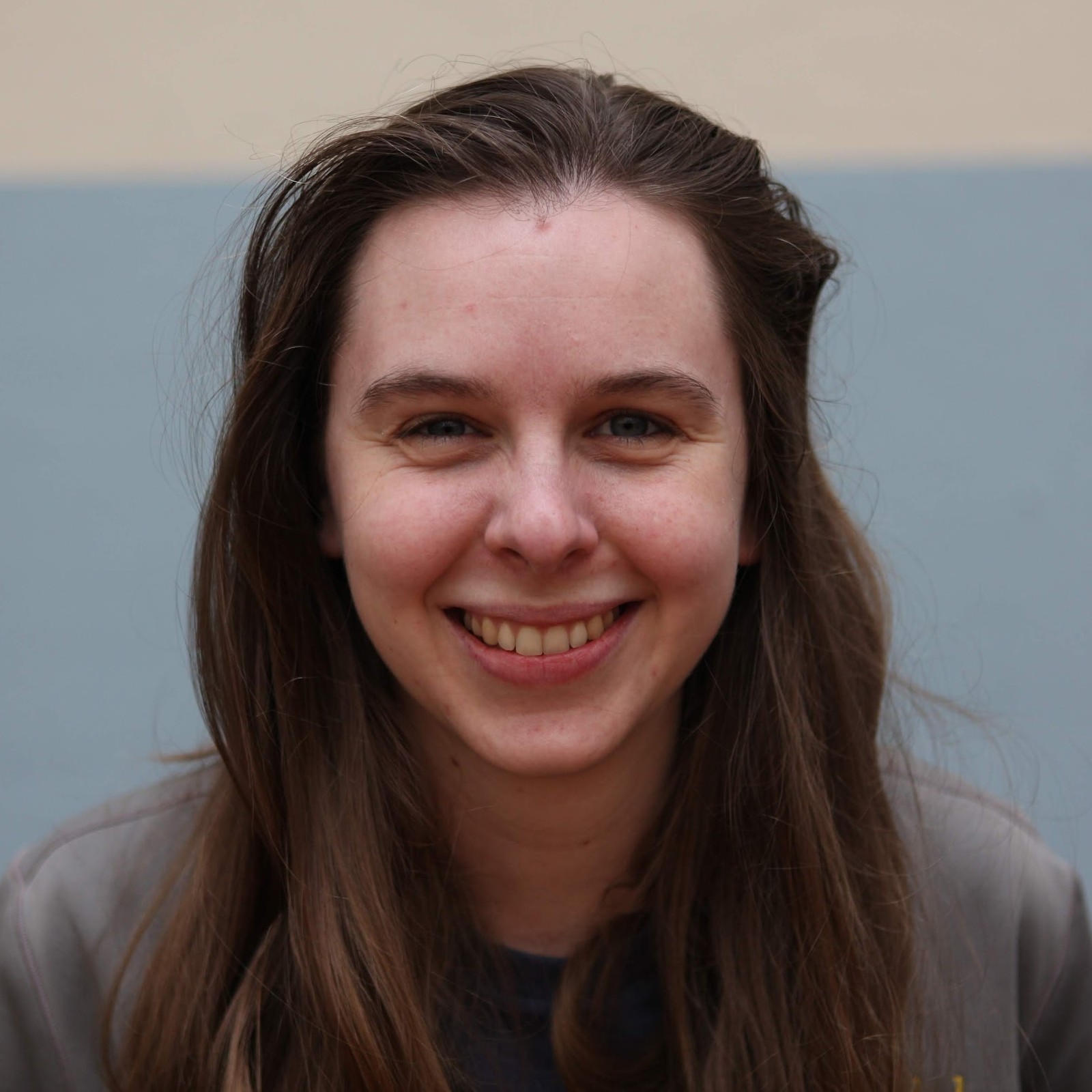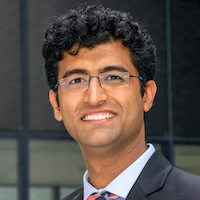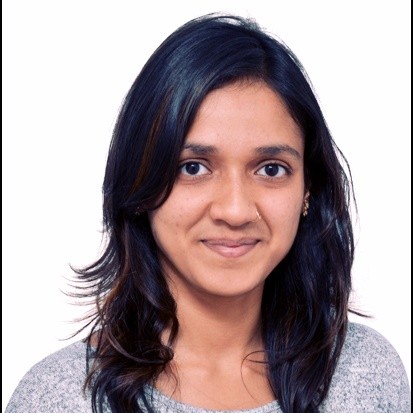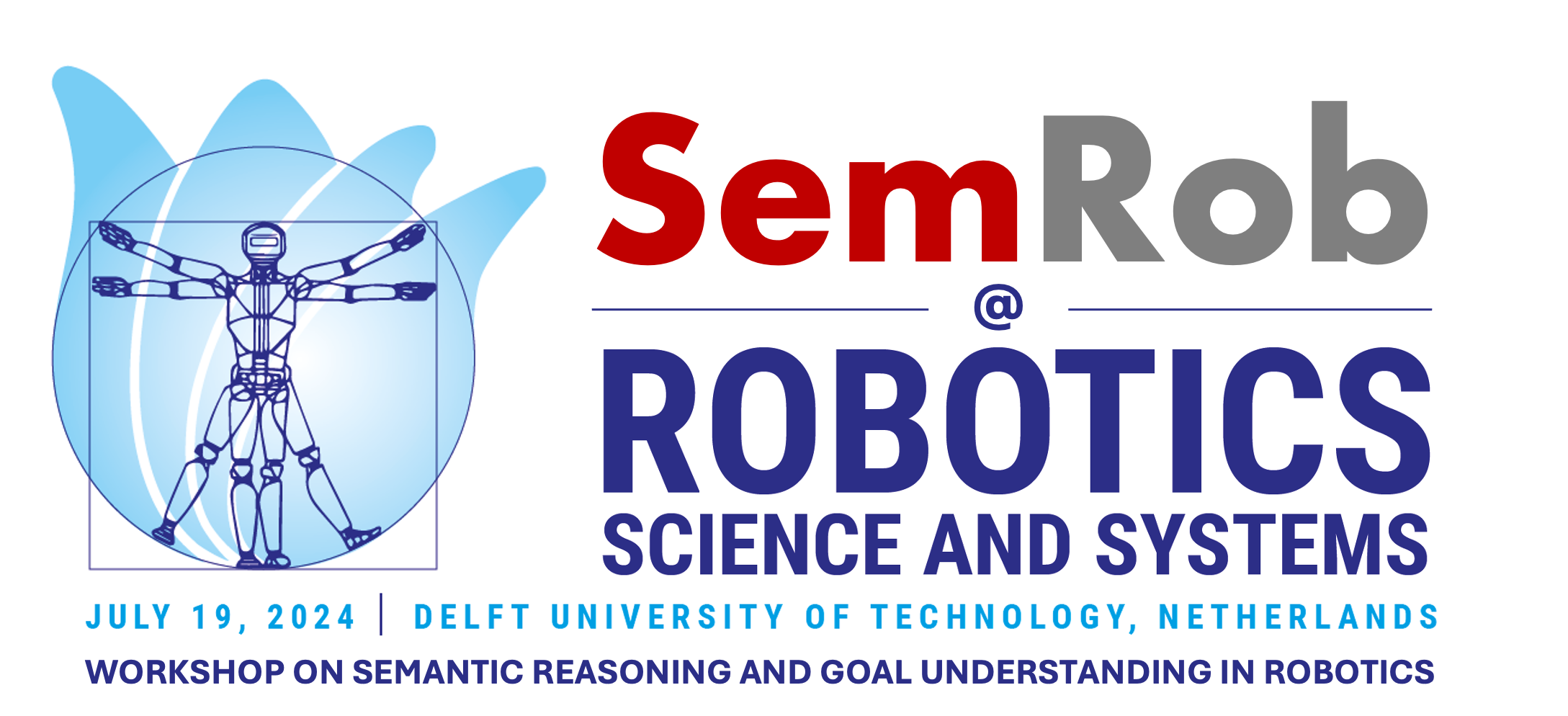Schedule
| Time | ||
|---|---|---|
| 13:30 | Organizers Introductory Remarks |
|
| 13:40 | Keynote 1: Niko Sünderhauf Semantics and Understanding for Better Perception, Representation, and Actions Abstract
What makes a good world representation for robotics that captures physical and visual properties, can predict the outcomes of robot interactions, and can be initialised and updated in real-time from vision? How can we learn long-horizon tasks involving interactions between multiple objects from only 10 demonstrations, while generalising across spatial and intra-class variations? And is the open-set problem still alive in the age of vision-language models? In this talk, I will touch on three of our recent projects in the areas of perception, representation, and robot learning.
|
|
| 14:00 | Keynote 2: Alessandra Sciutti Toward Artificial Cognition Abstract
Developing autonomous robotic agents with cognitive capabilities might benefit from a brain-inspired embodied cognitive approach, focused on proactive knowledge acquisition and on bidirectional human-robot interaction. Some of the building blocks of such artificial cognition are the principles of developmental robotics, the prospection capabilities, and the crucial role of social interaction. In this talk I will touch some of these aspects, with particular reference to understanding others.
|
|
| 14:20 | Keynote 3: Coline Devin Free lunch? Revisiting tradeoffs in goal-conditioned policy learning in the foundation model era Abstract
Goal-conditioned policy learning can look like very different dependending on choices in goal abstraction (state/image/language), data complexity, and human supervision.This talk will explore whether the advent of powerful foundation models fundamentally changes the tradeoffs associated with these choices, potentially offering more efficient and effective ways to train general robot agents.
|
|
| 14:40 | Spotlight Talks. IDs: 4,5,26,27 | |
| 15:10 | Keynote 4: Animesh Garg A Perspective on Prospection for Robot Autonomy Abstract
We will discuss a concept of prospection as the ability to predict two types of generative models: change in the environment (“What”) and morphology-dependent goal conditioned control (“How”). I will provide examples of recent work which move us towards a vision of large scale pretrained models for both stages in the context of robotics, and specifically for contact-rich manipulation.
|
|
| 15:30 | Coffee Break, Socializing, Posters | |
| 16:20 | Keynote 5: Joyce Chai LLMs for Navigation and Grounding in Cognitive Robots Abstract
The rise of large foundation models and generative AI have revolutionized many aspects of cognitive robots. In this talk, I will give a brief introduction to our recent work that applies LLMs to coordinate language communication with cognitive robots, particularly in personalized navigation and 3D grounding.
|
|
| 16:40 | Debate: Implicit/Data-emergent Reasoning Capabilities versus Explicit Reasoning Mechanisms? Panelists: Animesh Garg, Coline Devin, Yonatan Bisk, Niko Sünderhauf, Yilun Du |
|
| 17:50 | Organizers Closing Remarks |
Call for Papers
Submissions are handled through CMT: https://cmt3.research.microsoft.com/SEMROB2024
We will accept the official LaTeX or Word paper templates, provided by RSS 2024.
Our review process will be double-blind, following the RSS 2024 paper submission policy for Science/Systems papers.
All accepted papers will be invited for poster presentations; the highest-rated papers, according to the Technical Program Committee, will be given spotlight presentations. Accepted papers will be made available online on this workshop website as non-archival reports, allowing authors to also submit their works to future conferences or journals. We will highlight the Best Reviewer and reveal the Best Paper Award during the closing remarks at the workshop event.
Targeted Topics
In addition to the RSS 2024 subject areas, we especially invite paper submissions on various topics, including (but not limited to):- Learning semantically-rich and generalizable robot state representations
- Learning general goal representations, e.g., in instruction-following
- Reasoning mechanisms for generalization in open-vocabulary contexts
- Leveraging foundation models for robotics tasks; efforts to create robotics-specific foundation models
- Foundation model agent frameworks, e.g., for chain-of-thought reasoning, self-guidance, reasoning about failures, policy-refinement, etc.
- Multimodal tokenization and prompt mechanisms with foundational models for robotics tasks
- Grounding foundation models with other modalities (e.g., haptics, audio, IMU signals, joint torques, etc.)
- Combining foundation models with AI reasoning structures (e.g., neuro-symbolic structures, memory, cognitive architectures, etc.), for robotics tasks
- Data-efficient concept learning for robotics, e.g., few-shot demonstrations, interactive perception, co-simulation, etc.
Submission Guidelines
RSS SemRob 2024 suggests 4+N or 8+N paper length formats — i.e., 4 or 8 pages of main content with unlimited additional pages for references, appendices, etc. However, like RSS 2024, we impose no strict page length requirements on submissions; we trust that authors will recognize that respecting reviewers’ time is helpful to the evaluation of their work.Submissions are handled through CMT: https://cmt3.research.microsoft.com/SEMROB2024
We will accept the official LaTeX or Word paper templates, provided by RSS 2024.
Our review process will be double-blind, following the RSS 2024 paper submission policy for Science/Systems papers.
All accepted papers will be invited for poster presentations; the highest-rated papers, according to the Technical Program Committee, will be given spotlight presentations. Accepted papers will be made available online on this workshop website as non-archival reports, allowing authors to also submit their works to future conferences or journals. We will highlight the Best Reviewer and reveal the Best Paper Award during the closing remarks at the workshop event.
Important Dates
-
Submission deadline: 10 June 2024, 23:59 AOE. -
Author Notifications: 24 June 2024, 23:59 AOE. -
Camera Ready: 1 July 2024, 23:59 AOE. - Workshop: 19 July 2024, 13:30-18:00 CET














